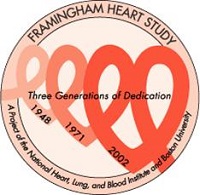
While some people think they need to overhaul their whole lifestyle in order to look and feel younger, there are simple and speedy things you can do in just a few minutes that could add up to big results. You may see this and think, “That’s common sense,” and yes it is, but if you actually DO it, you’ll feel and look better.
Exercise. I always say, “Exercise is the fountain of youth” and spending hours at the gym just isn’t feasible for women on the go. Instead, spend about 15 minutes each morning doing a shorter routine. A short exercise or a stretching routine, or warm up, then find an area in your community where you walk very briskly or run up a hill, and go as far as you can the first time, then each day keep adding to the distance, this helps to expand our lungs and strengthens our heart etc. I personally put this to the test and found enormous benefits of wellbeing. Allows more oxygen into our blood stream. Giving a great feeling of well being, always cool down after this routine. This assist greatly to keep your body youthful and full of vitality.
Watch what you eat. You don’t necessarily have to eliminate junk and comfort food completely from your diet. The key is to make healthier choices most of the time and consume smaller portions. Try – super-size your veggies and half-size everything else.
Eliminate bad habits. We all have our vices but try to limit nicotine, excessive alcohol intake and baking in the sun, all of which are proven to accelerate the aging process. If you can’t resist these temptations completely, at least try to cut down – every little bit helps.
Looking and feeling younger doesn’t require a lot of time or money. Following these easy tips and keeping a consistent routine could be just what you need to take a few years off your look.
The smaller your lungs, the greater concern there is for challenges. The ground-breaking Framingham Heart Study looked at data stretching back six decades and concluded your lungs tell you how long you’ll live. This ongoing research is particularly convincing for two reasons: it’s the longest running study in medical history and it has no involvement from the big drug companies.
Doctors involved in the Framingham study, William B. Kannel and Helen Hubert, both from the Boston School of Medicine concluded: your lungs are the number one predictor of death. To put another piece of this monumental discovery in their own words, here’s what they said: “This pulmonary function measurement appears to be an indicator for general health and vigour.”

![]()

